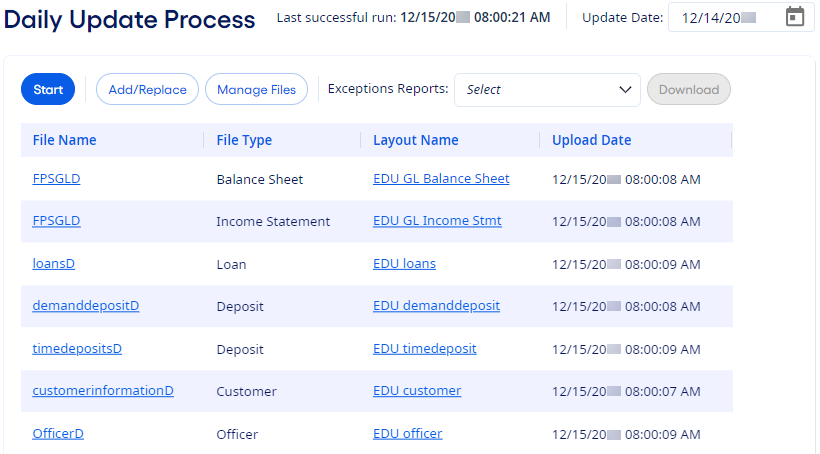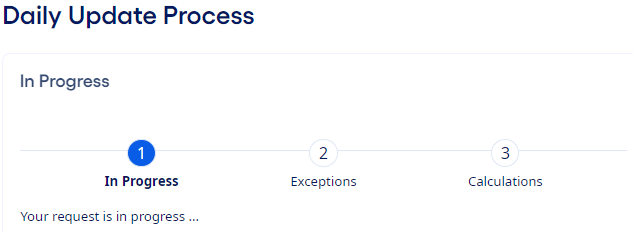You can complete the daily update
process manually on the Daily Update Process page if daily
files are not uploaded through the secure server or if you must reprocess records.
For most clients, the daily update
process is automated, but administrators can also upload files directly into the application
manually, if needed.
-
Select from the menu.
-
Select a day to update from Update
Date.
-
Select Add/Replace.
-
Select Select.
-
Browse and select a file to upload.
All uploaded files must be either .csv files or .txt files. New files
must have a unique name. If you are replacing a file, then the name of the selected
file must be the same as the name of the file you are replacing.
-
Select Upload.
-
Repeat this process to add or replace multiple files.
Tip Files that are not
associated with a file type or a layout show as Unmatched in the
list of extract files to process.
After the files are added and/or assigned, the file set appears in a
grid.
-
Verify that the appropriate data files appear, and modify the files as needed.
You can select the File Name for a file to download it. You can
also select the Layout Name to open the File Layout Setup page to modify the file layout and data mappings.
Use the  Delete option to remove files as needed. You can delete unmatched
files or ignore them. The daily update process ignores unmatched files.
Delete option to remove files as needed. You can delete unmatched
files or ignore them. The daily update process ignores unmatched files.
-
Select Start to run the daily update process.
A progress bar appears to show the current stage of the daily update.
During the first In Progress stage, the application begins
interpreting the information in the data files and validating that the information can
be processed.
Progress messages appear as the process moves through the update and
post-update stages and steps. If a problem is encountered, then a troubleshooting best
practice is to note the current stage and step of the process.
The Daily Update Process page shows the day
completed as the Last Successful Run.
If no problems are detected, then the process runs until it completes, and you
are notified that it was successful.
Resolve any exceptions that are found in
the second Exceptions stage, if needed, before the final
Calculations stage runs to complete the process.



